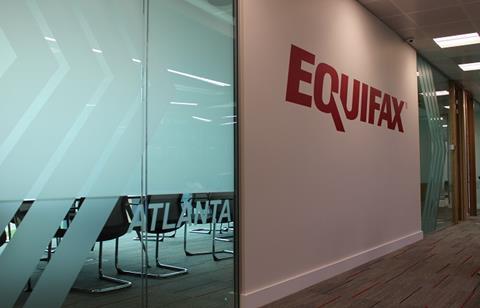
Global credit reference agency Equifax launched an online financial education programme in June 2018 to kick start an overall wellbeing strategy for its 800 UK employees.
This strategy was designed, in part, to help address the current business challenges Equifax is facing; namely, the attraction and retention of talent in an increasingly competitive technology market.
John Garside, HR director for Europe at Equifax, explains: “A lot of people’s [lives are] spent at work. We are asking more and more of people, [and] technology has driven the pace of work at a much faster rate. We have an obligation to make sure we support our people and there’s a commercial imperative; if an organisation drives people constantly and never supports them, [it will] see a productivity fall.
"[Employees] who are healthier are going to be more productive, more engaged and [a greater] benefit to [the] organisation. It’s great from [an] employer brand point of view [and] it’s great for attracting and retaining the best people in the industry.”
Building a wellness approach
Equifax’s new approach started in June 2018 with the introduction of its online financial education programme, provided by Nudge. The programme enables employees to access a personalised platform with educational content as well as financial action plans.
Integrated within the organisation’s flexible benefits platform, BenPal, which is provided by JLT Employee Benefits, the financial education also allows employees to receive personalised notifications that provide tips and guidance around lifestyle, legislative and organisation events.
For Garside, the introduction of financial education is an important step in creating an attractive employment proposition.
“When we talk about our benefits, we try and talk around the whole picture," he says. "What’s the office environment like? What are some of our policies and practices? How flexible are we? What non-cash elements to benefits [do we offer]? I’m proud that we’re doing [financial education], helping our people think about their financial awareness and, as an organisation that supports the financial services sector, it’s important that we practise what we preach.”
Garside is hoping that the education will also help to increase awareness of existing financial benefits, such as the pension scheme, season ticket loan scheme and local discounts.
Developing the strategy
Quarter three of 2018 has seen Equifax concentrate on financial wellbeing, but in quarter four the wellbeing strategy has moved to a mental health focus, to tie in with World Mental Health Day in October.
As well as reminding staff about its employee assistance programme (EAP), the organisation also undertook mental health awareness workshops for its managers in October 2018. “It’s a challenging area to deal with as a manager,” Garside says. “[We want to give] our managers confidence.”
For 2019, physical wellbeing will be on the agenda, although Garside is still exploring what shape this will take. His current ideas include workshops conducted by Equifax’s healthcare scheme provider, Bupa, health screenings and a focus on healthy eating and exercise.
A common recognition currency
As well as appreciating the importance of employee wellbeing in all its guises, Equifax also ensures that staff feel valued thanks to its global, online recognition platform, Bravo. This facilitates both peer-to-peer and top-down recognition.
Developed in-house by a US-based team a couple of years ago, Bravo is a social media style environment that allows employees and managers to send and receive recognition cards or post thank you messages.
The system also has its own currency: Bravo points. Managers have a set amount of points they can allocate to staff throughout the year to reward them for good work; once employees have amassed enough points, they can spend them on an array of products available via an online catalogue. Garside has used his own Bravo points to buy a pair of wireless speakers, for example.
“People appreciate not just the [Bravo points] value, but actually [the] recognition,” Garside explains. "That’s as important and something I always try and emphasise with the leadership team. It’s not just [the] monetary amount, but the recognition, the acknowledgement of the work by either peers, their manager or a senior leader in the business."
By September 2018, 66% of employees had received recognition through Bravo, and 32% had given recognition to others. In the UK, specifically, these numbers stand at 67% and 33%.
The employee voice
Equifax ensures it delivers on employees wants and needs thanks to feedback gained via its people forum. Representing all main functional areas of the business in the UK and Ireland, the people forum meets once per quarter to review what Equifax can do to improve the working environment.
Garside says: “[We] use [the people forum] as a means of engaging on new [ideas], so we’ve road-tested things around wellbeing, to get their voice and to get their input. That’s a really useful forum for us.”
One example of the forum's impact is in the redesign of Equifax’s employee of the month programme. Previously, the initiative was paper-based, led by senior management and awarded one overall winner per year a prize of monetary value. Feedback led to the scheme’s redesign 12 to 18 months ago. Now, the employee of the month scheme is online, owned by the people forum itself, and awards one yearly winner per site a prize of Bravo points.
Equifax also launched a diversity forum in May 2018, coinciding with its committing to the Women in Finance Charter, which asks financial services organisations to deliver actions that prepare its female employees for leadership positions. The diversity forum played a central role in building Equifax’s action plan around this.
“This is not a question of myself and the executive team saying 'let’s think about this',” Garside says. “It’s people internally who have helped us create the plan, and we’ve got a number of actions that we’re going to be taking over the next 12 months, and longer-term.”
As part of this, Equifax will be exploring its recruitment processes, reviewing potential subconscious messages on its website, for example in the images it uses, and delivering unconscious bias training for its managers.
“It’s about broadening our ability to recruit people across a wider spectrum,” Garside adds. “We have got to think about how we appeal to as broad a range of people in the employment market as we can.”
Communications
Although Equifax uses a range of online communication methods, such as its staff intranet, an online share point called People Link, its flexible benefits platform and now financial education notifications, Garside is keen to increase face-to-face communications.
These are currently done using monthly 30 to 45-minute breakfast briefings hosted by senior management, as well as longer town hall updates.
Moving forward, Garside wishes to get Equifax’s benefits providers on-site more to deliver informal communications, such as lunch and learns. For the 2018 benefits renewal window, Garside invited new benefits providers to attend its UK sites to offer information to employees. This is something he plans to repeat for 2019.
A wide view
Being a competitive employer in an increasingly flooded market has proven to be a prominent challenge, but Garside believes that the implementation of small, thoughtful benefits as part of a wider reward outlook has helped to improve the overall working experience at Equifax. This includes hosting payday events, such as a pizza lunch, introducing a dress-down code and giving employees their birthday off without deducting from their holiday entitlement.
Garside concludes: “I’d like to think our attrition rates are [an] indicator. I know there are lots of things that can impact attrition, but I think the broad range of stuff I’ve talked about, not just cash but non-cash [benefits] and the environment [we] create, helps towards [our] attrition rate. Some organisations will sometimes see attrition rates start to climb a bit, but ours have been relatively stable, and I’d like to think some of the work we’ve been doing for the business has contributed to that.”
At a glance
Global credit reference agency Equifax has 1,200 employees across Europe, 800 of which are based across three sites in the UK: Leeds, London and Nottingham. Describing itself primarily as a data analytics and technology business, Equifax has recently sought to strengthen its IT function, which now has more than 200 staff.
Key job roles at Equifax are centred around data sciences and analytics, although the organisation also has an operations centre, to liaise with both business-to-business and business-to-consumer clients. It also runs three captive centres internationally, which focus on the development of global products.
The average tenure of Equifax employees is 5.5 years and the workforce gender split is 40% female employees and 60% male. The average age of Equifax employees is 39.8.
Business objectives
- To continue Equifax’s transformation programme around how the organisation serves its customers.
- To be an industry leader in terms of data security and data technology.
- To ensure employees are part of Equifax’s growing business journey.

Career history
John Garside, HR director for Europe, joined Equifax in March 2015. Initially, he worked as senior HR business partner, before stepping into his current role in December 2016.
Previously, Garside was employed as senior HR business partner at Vodafone UK between March 2014 and March 2015, and he also held numerous HR and reward-related roles at consumer credit reporting agency Experian between September 1998 and May 2013. Garside has also worked at Boots and British Gas.
For Garside, his proudest career achievements revolve around people development: “I think about the times I’ve really enjoyed work and I would say it’s about the teams [I have created], the people [I have left] behind, what they move on to. I think about some of the people I’ve been privileged to have work for me who’ve moved on to bigger and better things.”
Read more...











